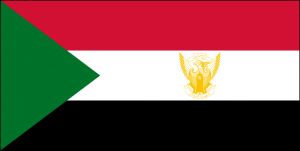Language/Sudanese-arabic/Vocabulary/Health
Hi Sudanese Arabic learners! 😊
In this lesson, we will explore Sudanese Arabic vocabulary related to health. It is important to know these words and phrases to communicate with your doctor or seek medical attention if needed. We will also discuss some cultural beliefs about health and wellness.
Consider broadening your understanding by checking out these related lessons: Days of the Week & Clothes.
[edit | edit source]
Let's start with some common health-related words and phrases:
| Sudanese Arabic | Pronunciation | English |
|---|---|---|
| صحة | ṣiḥa | health |
| مرض | marad | illness/disease |
| دواء | dawā' | medicine |
| صيدلية | saydaliyya | pharmacy |
| طبيب | ṭabīb | doctor |
| ممرضة | mumarrida | nurse |
| مستشفى | mustashfá | hospital |
Here are some useful phrases to know when visiting a doctor:
- أنا بحس بالمرض. (Ana baḥs bil-marḍ.) - I am feeling sick.
- ماء الشرب الكثير. (Mā' ash-shirb al-kthīr.) - Drinking a lot of water.
- أنا بحتاج لبعض الدواء. (Ana bhtāj lbʿd d-Dawāʾ.) - I need some medicine.
- هل يمكنك تحديد الأعراض؟ (Hal yumkinuk tahdīd al'aʿrādi?) - Can you diagnose the symptoms?
- هل لديك أي نقاط مؤلمة؟ (Hal ladayk 'ayu nuqat mu'alama?) - Do you have any tender points?
Traditional beliefs and practices[edit | edit source]
In Sudan, many people still hold traditional beliefs about health and wellness. They may opt for natural remedies rather than modern medicine. Here are some interesting facts about traditional beliefs:
- تمر الأصفر للحصول على طاقة جسدية. (Tamr al'asfar lilhusuul 'iilaa taqat jisadia.) - Eating yellow dates for physical strength.
- بذور العنبية تنظف الأمعاء. (Badhuur al'nbaya tanzif al'amiea.) - Grape seeds for cleaning the intestines.
- الزنجبيل يعزز صحة الفم والجهاز الهضمي. (Alzanjabīl ya'izzu ṣiht al-fam waljihāz al-hadimi.) - Ginger promotes oral health and digestive system.
- القرفة تقلل من سوء الهضم. (Alqirfa titanqil min suuu' alhadim.) - Cinnamon reduces digestive problems.
Dialogue[edit | edit source]
Here is a dialogue between a patient and a doctor:
- Person 1: أنا بحس بآلام في المعدة. (Ana baḥs bil-alam fil-maʿda.)
- Person 2: هل تعاني من إسهال أو تقيؤ؟ (Hal taʿānī min 'isshāl 'aw taquyūa?)
- Person 1: نعم، تقريبًا منذ ثلاثة أيام. (Naʿam, taqrīban mundhu thalātha 'ayyām.)
- Person 2: عليك بالراحة وتناول السوائل الدافئة. كما يمكنك تناول هذا الدواء. (ʿalayk bi'r-rāha wa-tanāwul as-sawā'il ad-dāfiyah. kama yمكنك تناول hadha d-dawā'.)
- Person 1: شكرًا جزيلاً. (Shukran jazīlan.)
Conclusion[edit | edit source]
In this lesson, we covered important health-related Sudanese Arabic vocabulary and cultural practices. Remember that practice is the key to learning a new language. You can improve your Sudanese Arabic vocabulary by using the Polyglot Club website. Find native speakers and ask them any questions!
➡ If you have any questions, please ask them in the comments section below.
➡ Feel free to edit this wiki page if you think it can be improved. 😎
Finished this lesson? Check out these related lessons: Food & Education.
Other Lessons[edit | edit source]
- Animals
- Clothes
- Drinks
- Feelings and Emotions
- How to Say Hello and Greetings
- Colors
- Count to 10
- Express Surprise
- Days of the Week

